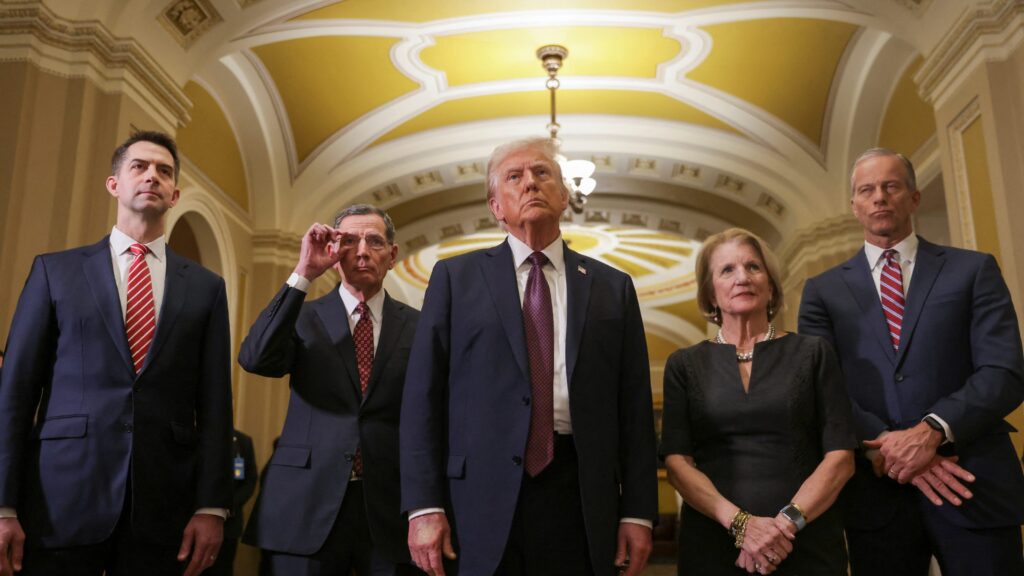Senate Republicans are on the brink of addressing President Donald Trump’s ambitious legislative proposal, known as the “big, beautiful bill,” which holds significant implications for various sectors of society, from service workers to high-income individuals. This comprehensive legislation aims to fulfill key promises made during Trump’s 2024 campaign, including tax breaks for service workers and extending previous tax cuts. However, while some stand to benefit, concerns arise over potential negative impacts on Medicaid recipients and undocumented immigrants.
The path to passing this monumental bill faces hurdles within the Senate, as Republicans strive to meet a self-imposed deadline of having it on the president’s desk by Independence Day. With complex intra-party negotiations and the need to secure enough support for a successful vote, the pressure is on to navigate through disagreements and align with the GOP-led House.
A major point of contention revolves around proposed Medicaid reforms, particularly cuts that have sparked debates among Senate Republicans, with concerns raised about the potential consequences of limiting states’ ability to fund their share of Medicaid expenses. Additionally, the legislative process faces challenges from strict reconciliation rules, as the Senate parliamentarian evaluates compliance issues that could impact the bill’s content.
Amidst these debates, concerns about the bill’s impact on the national deficit loom large, with senators pushing for deeper spending cuts and grappling with provisions that could increase the debt ceiling significantly. The legislation has exposed divisions within the GOP, with factions advocating for different priorities, from deficit reduction to preserving renewable energy tax credits.
As Senate Republicans navigate through complex negotiations and ideological clashes, the fate of Trump’s signature bill hangs in the balance, awaiting resolution on key issues to move forward towards enactment.

